University of Strasbourg is strongly committed to supporting its scientific staff. Several departments offer researchers and doctoral students data support covering the entire data life cycle.
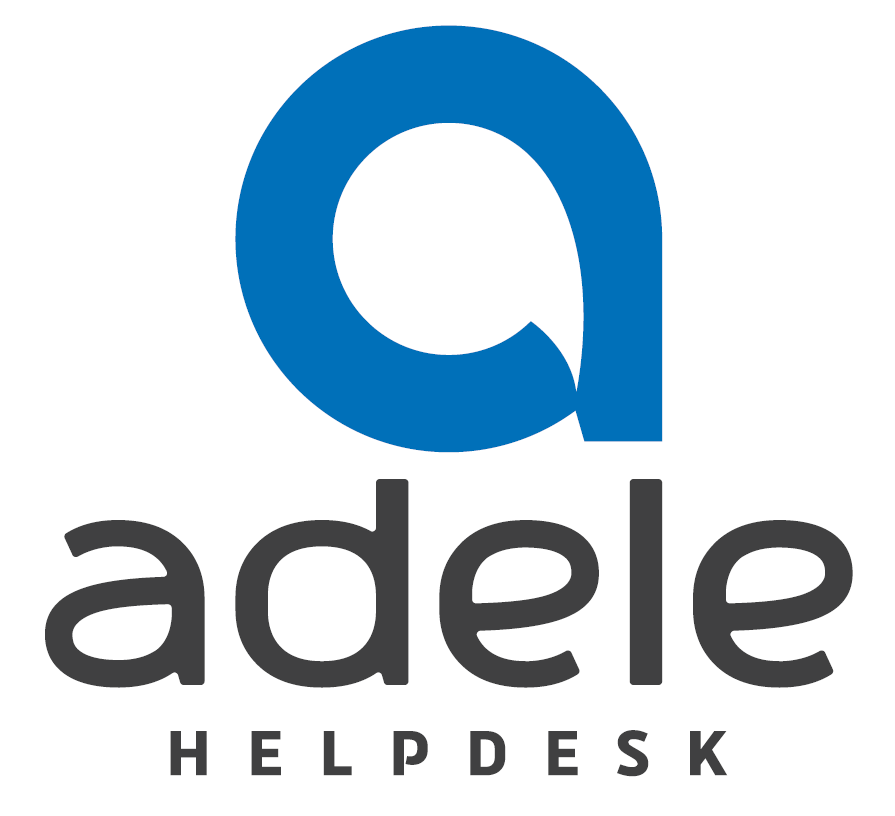
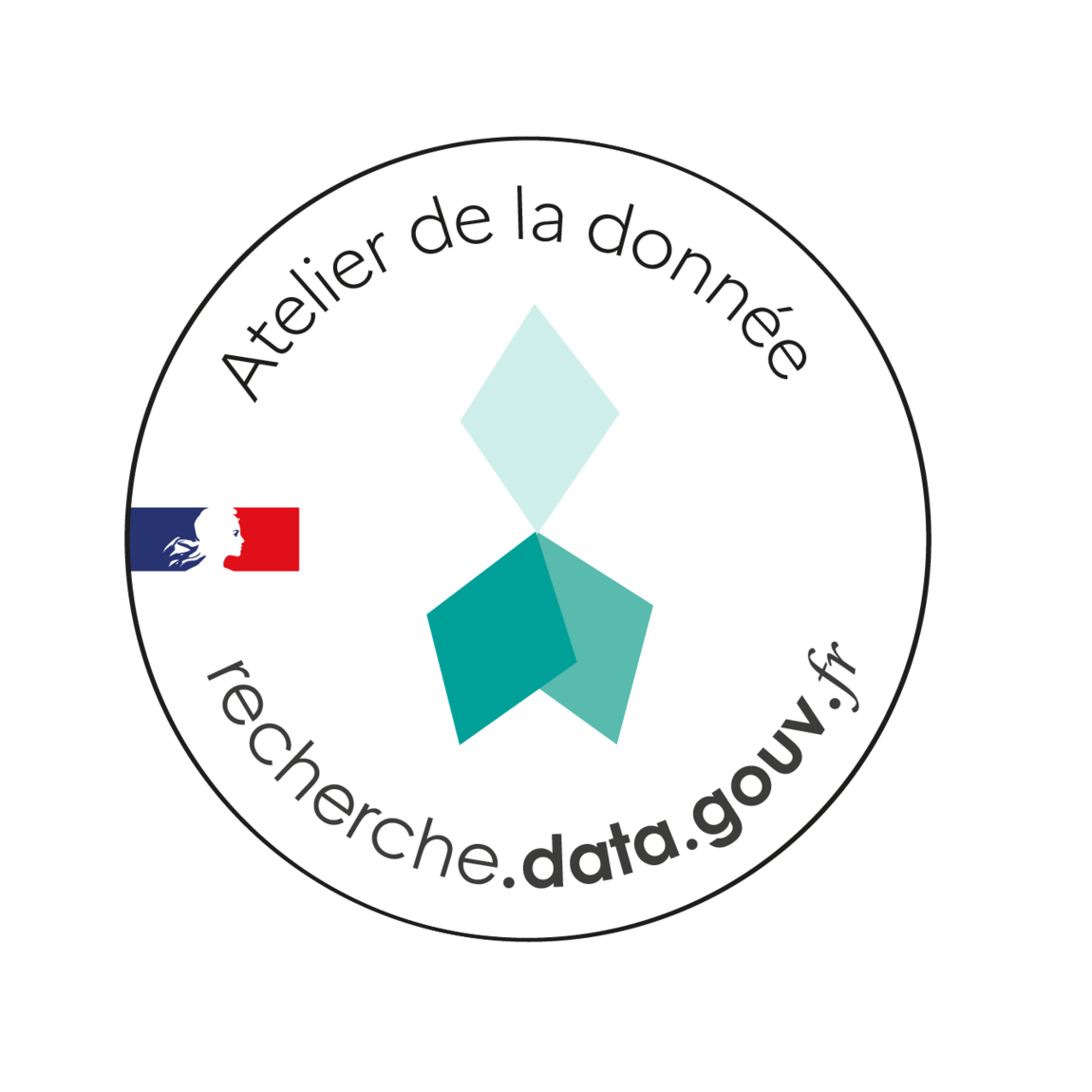
ADELE Helpdesk The alsatian data management cluster
The one-stop shop for data
ADELE Helpdesk is the one-stop shop that answers questions from scientific staff in Alsace about research data and software / code.
Certified in 2022 by MESR as part of the implementation of the Recherche Data Gouv ecosystem, the data workshop is run by the scientific data support staff of the University of Strasbourg, Université Haute-Alsace (UHA), Alsace Inter-University House for the Social Sciences and Humanities (MISHA), INSA Strasbourg and Bibliothèque nationale et universitaire de Strasbourg.
ADELE is supported by CNRS and the PROGEDO and Huma-Num research infrastructures.
Who is ADELE?
ADELE members work in the following departments:
University of Strasbourg
- BU Data team, Research dissemination support centre, Library Service
- CESAR
- SCIGNE platform
Alsace Inter-University House for the Social Sciences and Humanities (MISHA)
Université de Haute-Alsace (UHA)
- ESSOR, Learning Center
INSA Strasbourg
- Research Department
Bibliothèque nationale universitaire de Strasbourg
- The Lab, INPI
ADELE assistance
The members of ADELE can provide you with support in the following areas:
- Planning your research project
- Help with setting up the project: calculating the budget for data management (cost of storage, archiving, softwares, software development, hidden costs, etc.)
- Data management plan: review and guidance
- Data creation / collection
- Help with data creation/collection: database interrogation (API), corpus creation/digitisation
- Help with data structuring: metadata standards and schema proposals
- Data processing/analysis/software code
- Storage/computing: support in using the Unistra computing centre (CESAR/DNum), the high-speed computing service (SCIGNE) and the Huma-Num Box (PHUN)
- Databases: configuring databases (POUNT, HEURIST), developing web applications, etc.
- Sharing and/or opening up data
- Help with depositing data in a repository: choosing a thematic repository; if there is no disciplinary repository, assistance with depositing in Recherche Data Gouv and curation of data deposits
- Help with choosing licences
- Data archiving
- Help with setting up a data preservation strategy: with archivists and DPOs, best practices, legal aspects, etc.
- Data reuse
- Help with data discovery: search in national and international databases, in thematic repositories by type of data (format, language, etc.)
Scope
The scientific staff from the following institutions can contact ADELE Helpdesk:
- University of Strasbourg (Unistra),
- Université de Haute-Alsace (UHA),
- INSA Strasbourg,
- Bibliothèque nationale et universitaire de Strasbourg,
- École Nationale du Génie de l'Eau et de l'Environnement de Strasbourg (ENGEES),
- Haute École des Arts du Rhin (HEAR),
- National School of Architecture of Strasbourg (ENSAS),
- Alsace Inter-University House for the Social Sciences and Humanities (MISHA),
- School and Observatory of Earth Sciences (EOST),
- OSU Strasbourg Astronomical Observatory (ObAS),
- French National research institutions (CNRS, INRAE, INSERM),
- Strasbourg University Hospitals (HUS).
Training courses
- Courses on multiple topics related to data and softwares offered by the Library Service, Urfist, CCN, PUD-S and PHUN, CESAR, Lab de la Bibiothèque nationale et universitaire de Strasbourg
- Data & Software Carpentries workshops
Regular meetings and events
- Meet the Research dissemination support centre teamand CESAR every Tuesday afternoon at the Atrium
- The Data coffee, monthly meetings on data at the Studium and online
Recherche Data Gouv to deposit and open your data
Since July 2022, the University of Strasbourg has had an institutional space in Recherche Data Gouv, the French research data repository. This multidisciplinary platform is designed to host data from scientific communities that do not have yet their own thematic or disciplinary research data repositories.
The Unistra support team
With two functional administrators and two curators working in CESAR and the Library Service, the institutional space of the University of Strasbourg support team will be with you from the moment you log on to the platform until your dataset is published.
Support can be individual or take the form of training on request.
Open classes
The Plateforme nationale des données de la recherche team offers online training courses (in French) throughout the year to help you get to grips with the repository. The open classes cover the following topics:
- Depositing a dataset in the repository
- Administering a collection
- Discovering the APIs
- Using the APIs
Questions about Recherche Data Gouv?
support-entrepot[at]unistra.fr
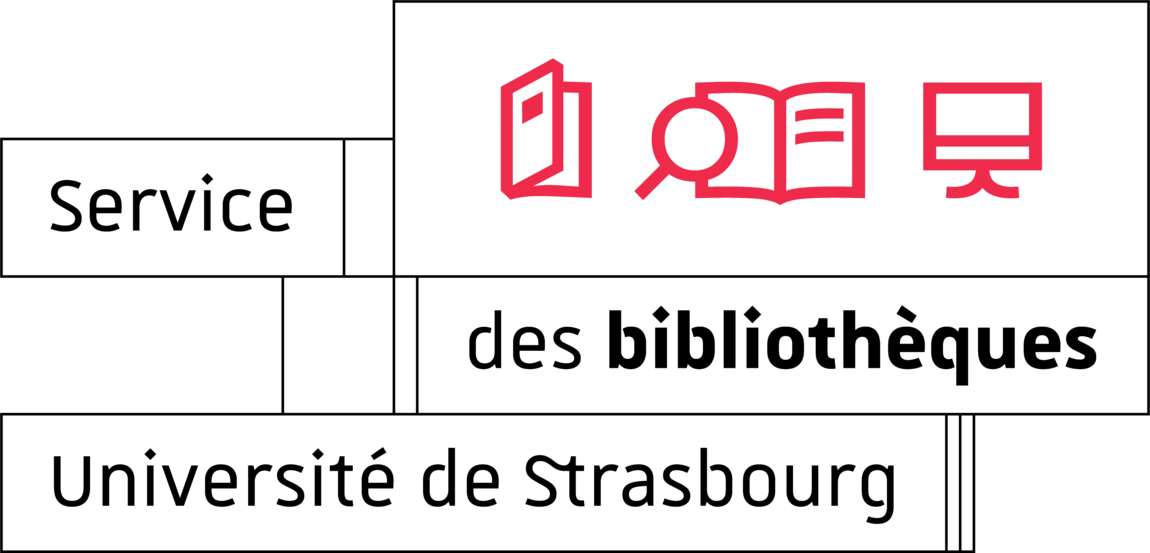
Library Service's Research Data team (BU Data) for a FAIR data & software management
Unistra's Library Service (SBU) has had a team dedicated to research data since 2015. As part of the research dissemination support unit, the data librarians advise scientific staff on data-related issues, in particular on the data management plan.
Areas of expertise
- Project and entity data management plan: review and advice
- Preparing funding applications for projects (ANR, Horizon Europe, etc.): help with budgeting, help with drafting applications (open science section)
- FAIR management of data and software code: advice and best practice
- Data repositories: advice on choosing a repository and depositing data
- Recherche Data Gouv: curation and publication of dataset in the Unistra institutional space, support for dataset deposit
- Web application development (with CESAR): help with drafting specifications, assistance with data structuring, advice on choosing metadata standards
Regular meetings
The Research Dissemination Support Unit is availableevery Tuesday from 10am to 12pm in the Studium (ground floor, cubicle 3).
The BU Data team will be on duty on:
- 6 February 2024
- 26 March 2024
- 14 May 2024
- 18 June 2024
Training
Data librarians give training courses on data management at URFIST throughout the year, both face-to-face and online.
Next course:
- Le plan de gestion de données : fondements théoriques et pratiques, 13 mars 2024 at the Studium
It is also possible to provide training on demand.
Contact the BU Data data librarians at :
bu-data[at]unistra.fr
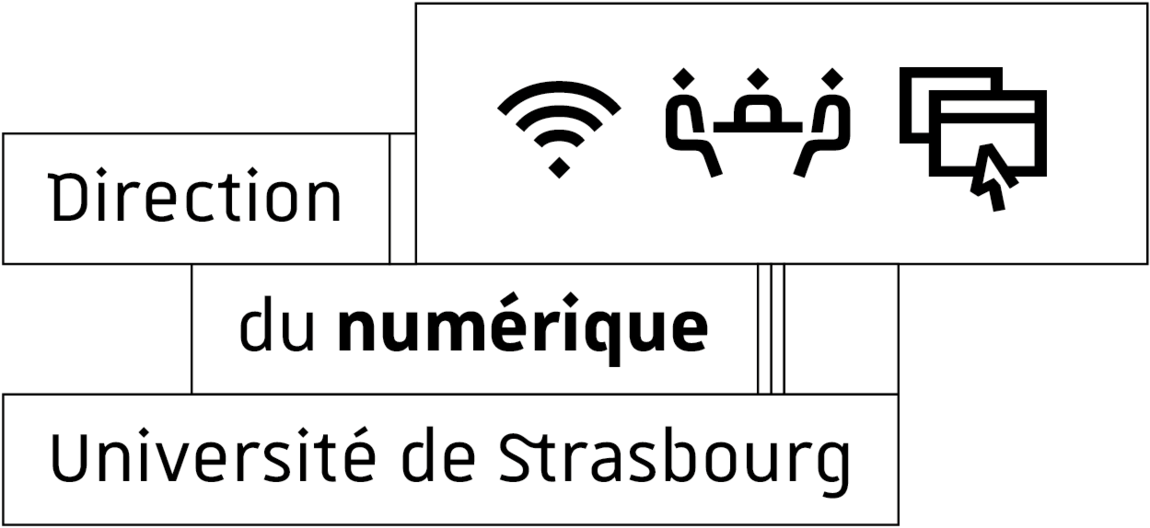
Advanced computing and services for research (CESAR) for high performance computing and web applications development
Direction du numérique (DNum)
As part of the IT Department (DNUM) of the University of Strasbourg, CESAR core mission is to:
- Lead the implementation of strategic orientations around high-performance computing and shared services for research data;
- Designing, implementing, developing and maintaining the information system supporting scientific computing and data projects, and guaranteeing its security, coherence and evolution in close collaboration with other IT services;
- To provide the institution's researchers with guidance, advice, assistance, information, training and alerts relating to the information system, scientific computing and data projects.
The team is divided into 2 main types of service:
Manager: Arthur Pons
dnum-cesar[at]unistra.fr

ESTRADES platform to structure your texts with TEI
Palais universitaire
The ESTRADES platform offers technical solutions, tools and support for issues relating to the structured and critical editing of textual or graphic sources, from data acquisition to dissemination, including analysis, enrichment and conservation. The acronym implies a relatively simple but sufficiently stable infrastructure, enabling the projects it supports to be promoted.
The platform is aimed at researchers and students at Unistra and UHA, as well as heritage institutions, in partnership with the Alsace Inter-University House for the Social Sciences and Humanities (MISHA) and the Bibliothèque national et universitaire de Strasbourg's Lab.
Two approaches guide the platform's thinking: firstly, open science, through the re-use and re-purposing of resources, datasets and tools, and secondly, a desire to develop and support solutions that are more energy and technology efficient.
A newsletter on events in Alsace on research humanities exists since 2024: https://groupes.renater.fr/sympa/subscribe/alhn
SCIGNE platform for High-Throughput Computing and management of massive scientific data
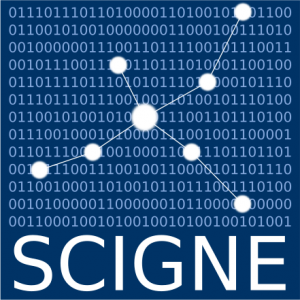
Institut pluridiciplinaire Hubert Curien (IPHC)
SCIGNE (Scientific Cloud Computing in Grand-Est) is a pluridisciplinary platform dedicated to the processing and management of massive scientific data.
Hosted at IPHC, it is open to regional, national and international scientific actors, whether from the public or private sector.
The infrastructure consists of computing and data storage systems, recognized at the European level and interconnected to several partners (France Grilles, IFB, EGI and WLCG).
It includes the following infrastructures:
- High-Throughput Computing (HTC) cluster linked to the EGI and WLCG grids
- Cloud Computing (OpenStack) offering an on-demand computing server and container service
- Massive data storage and management system based on iRODS
- Data archiving on tape
It is operated by a team of engineers with complementary technical and scientific expertise, that offers a range of services (training, software development, job management, writing of data management plan, etc.) to meet the challenges of Big Data and the implementation of Open Science policies:
- High-Throughput Computing
- Servers and Containers as a Service
- Research Data Management, including support for the data management plan
- Training and support
Digital Lab (Lab numérique) for a hands-on approach of digital-related issues
Centre de culture numérique (CCN)
The Lab Numérique offers workshops and services based on "extended" digital writing (using video, 3D, data, data processing, programming, etc.):
- creating, communicating, solving problems or designing your own tools.
- workshops, advice, mutual assistance in an open and collaborative approach (Open Source, Open Innovation, Open Science, Open Data), accessible to non-specialists.
In particular, you can :
- receive advice on acquiring, processing and displaying your data
- carry out a targeted technological state-of-the-art review
- automate what can be automated to save time
- borrow small equipment
- use the video studio to promote your project
Detailed workshop programme (updated in real time, in french) [PDF]
Website
Digital Humanities Platform (PHUN) for qualitative data in Humanities
Alsace Inter-University House for the Social Sciences and Humanities (MISHA)
This service is intended for all researchers and students in the humanities and social sciences in Alsace.
PHUN was set up by the MISHA in 2019. It is part of the « Data and Knowledge » hub of the MISHA. It is the relay of the HUMA-NUM research infrastructure focussing on digital humanities.
Missions
- Training in digitial humanities : digital workshops, university courses, and masterclasses.
- Tech vigil: ongoing, detailed awareness of technical needs and competencies in Alsace.
- Simple technical solutions, for example:
- Heurist for databases
- Huma-Num Box for data storage
- Assist in the implementation of research projects: discover supports that are available to you under the "Services" heading below.
- Encourage the writing of data papers in the humanities and social sciences, and make research data available according to the FAIR principles (Findable, Accessible, Interoperable, and Reusable)
- Reinforce the links between the services of the University of Strasbourg and the services of the University of Upper Alsace.
Services
PHUN will accompany you in becoming more autonomous in your research projects that use digital humanities. The platform offers individual or group aid in:
- Training in tools and methods for optimising your work
- Discovery of local, national, or european partners
- Development or conservation of existing projects: Huma-Num storage, technical migration (Heurist), automated publishing tools
- Drafting responses to calls for projects
- The implementation of a data management plan (DMP) for the structuring, conservation, storage, and security of data
For more information:
phun[at]misha.fr
website
Plateforme universitaire des données (PUD-S) for quantitative data in Humanities & Social Sciences
Maison Interuniversitaire des Sciences de l'Homme (MISHA)
This service is intended for lecturers-researchers, PhD and Masters students.
Created in 2016, PUD-S is hosted at the MISHA. Along with the Digital Humanities Platform, it is part of the Misha's "Data and Knowledge" hub.
The University Data Platform supports and promotes quantitative analysis in the Humanities and Social Sciences. As a relay for the CNRS's PROGEDO research infrastructure, its activities contribute to the development of digital humanities.
Individual support
PUD-S assists researchers, doctoral students and Masters students in the various stages of their research linked to quantitative analysis:
- When researching existing data
"I'm working on a theme and I'd like to know if there is any data on it".
"I know that data exists but I don't know how to access it".
- When the data is being used
"I have identified data but I don't know how to process it".
- When processing data (mastering statistical and IT tools)
"I know what I want to do with my data but I don't know how to do it".
- When interpreting and presenting the results
"I've done the statistical processing I wanted to do, but I'm not sure what all the indicators represent".
Group training
PUD-S can also organise group training courses on methodology or specific software. Furthermore, it is involved in Masters courses to raise awareness among students of the use of quantitative data in the social sciences and humanities.
The data
PUD-S aims to promote the use of quantitative data. These data come from French, European and international public statistics. They include survey data as well as administrative data, always documented and often enhanced with metadata.
More information:
pud-s[at]misha.fr
Website (in french)


![[Translate to English:] CCN CCN](/websites/science-ouverte/science_ouverte/logos/centre_culture_numerique.png)
![[Translate to English:] PUD-S pud-s](/websites/science-ouverte/science_ouverte/logos/logo_pud-s.png)